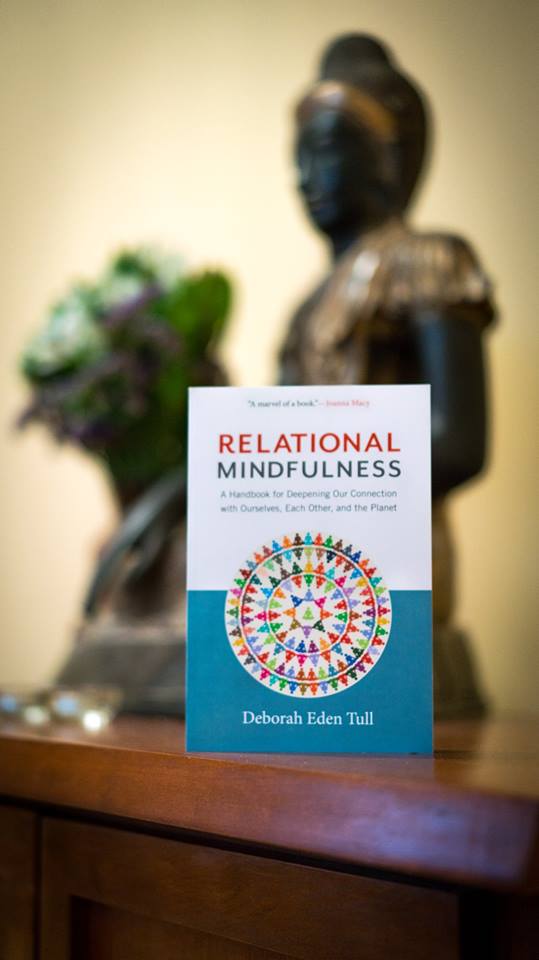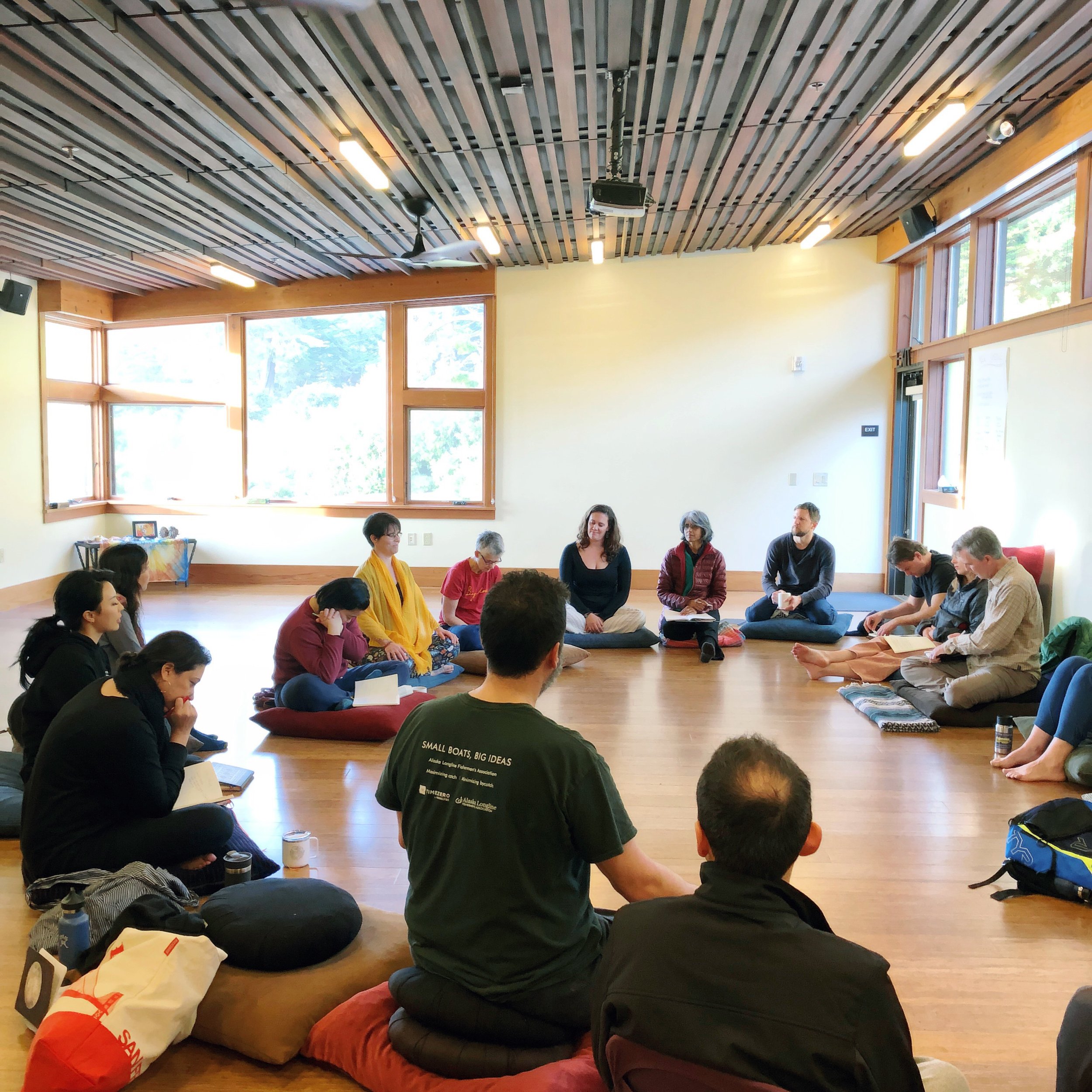RElational mindfulness IN AN AGE OF CHANGE
“The quality of our life experience is governed by the focus of our attention. If our attention is focused on the conditioned mind, we suffer. When our attention rests in present moment awareness, we are free. All of our experiences, whether enjoyable or difficult, can be met with compassionate awareness. The simple instruction and motivation for Relational Mindfulness is this: In every moment, we have a choice in how we direct our attention. We can return to interconnection in every moment— and we can allow our relationships to help us to do so.” - Deborah Eden Tull
What is relational mindfulness?
Relational mindfulness is a body of practices and principles that support us to use everyday life and all of our relationships, conversations, conflicts, and interactions for awakening. This encompasses both inner healing and collective healing.
It helps us to stay present through the beautiful dynamic and messy domain of human relationship.
It is a bridge between what we are practicing on the cushion and how we relate to one another. Eden wrote Relational Mindfulness in her transition from being a Zen Buddhist monk to living and teaching out in the world. In this transition she recognized the need for a clearer bridge.
It asserts that every relationship we have begins with the relationship with ourselves.
It is an application for how we engage with the more than human world; the natural world, and the world at large.
Since this book was published in 2018 these practices have been embraced by people all over the world, both Buddhist and secular practitioners, as well as families, communities, facilitators, earth activists, and agents of change. We also bring these principles to organizations and workplaces.
In 2023 we offered the first Relational Mindfulness Facilitator training. We have a growing team of people who are bringing this work to their communities.
Join Eden at Esalen this summer for Relational Mindfulness: A Path to Personal & Collective Awakening
More information and registration coming soon.
WAYS TO PARTICIPATE
Join us:
Online for Eden’s weekly meditation with the Fierce Compassion Sangha.
Online for a 6-month Heart of Listening training. This program is a prerequisite for the Relational Mindfulness Facilitator Training.
Online for a Relational Mindfulness Facilitator training.
“I’ve been connecting with people from so many different walks of life, letting relational presence reveal our kinship and understanding, rather than a shared belief system,”
- Deborah Eden Tull in an excerpt from her Meet the Teacher profile in Tricycle Magazine
Relational Mindfulness is based on the understanding that the subtlest form of love is attention. It is about paying attention to ourselves, to one another, and to our planet, with more intention, and, in so doing, to affirm who we really are.
Relational Mindfulness invites you to consider the ways that the mind of separation operates in your life and in your world and to deepen your embodiment of whole mind. What is possible when we pay attention more subtly and bring curiosity to our moment by moment experience of life, questioning the actual lens through which we have been perceiving our experiences? What is possible when we remember the still spaciousness within, and allow all of our life experiences—pleasant and unpleasant—to be met by compassionate awareness? What is possible when we align our outer actions with inner stillness?
The good news is that all that is required for our healing is the willingness to remember who we are authentically. Although the mind of separation has carried us far away from the love that is who we are, this love never leaves us—it is only ever we who leave it.
To heal in this way we have to be willing to reconnect with awareness as our guide. We have to be willing to meet one another in the field of compassionate presence rather than through habit, projection, or judgment. We have to be willing to return confidence to nature and to savor our place in it.
Ultimately, Relational Mindfulness is about coming into sacred partnership with all beings. It is a path of “remembering” the inter-being that is who we are. On a practical level, most people need support for this remembering through everyday life and relationship, because the trance/myth of separation that has made such a mark on human consciousness. The 9 principles and practices of Relational Mindfulness help us to realize non-separation as the foundation of our existence here, and to live, act, and respond consciously from that place. Relational mindfulness helps us to integrate embodied relational presence in every domain of life, rather than engaging from the mind of separation or “I versus you.” It offers a path to meeting the urgency and immediacy of our times through the authentic power or shared power of our connection with one another, our connection with the earth, and our accountability to all beings—past, present, and future.
We invite you to check out Eden’s book Relational Mindfulness: A Handbook for Deepening Our Connections with Ourselves, Each Other, and the Planet.









